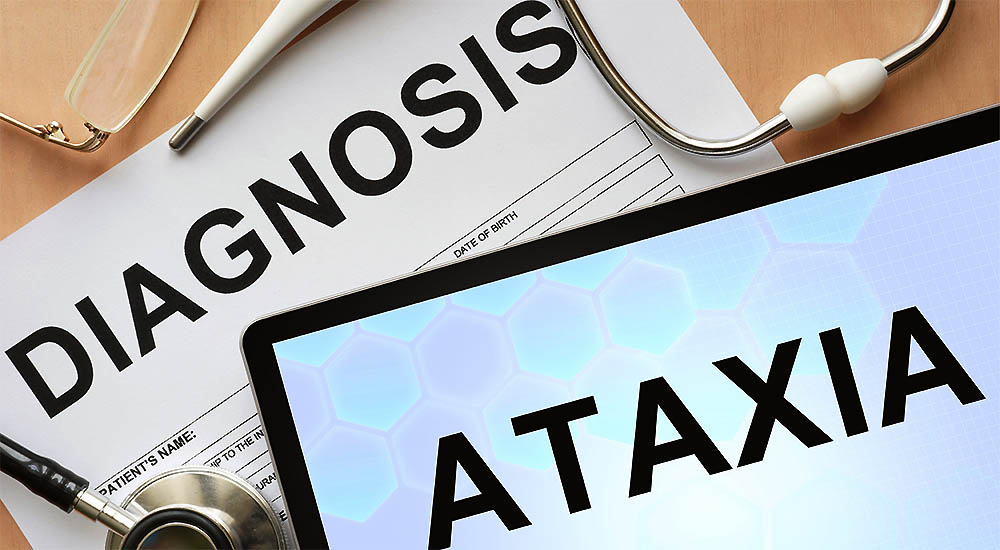Gluten Causes Ataxia (Unstable Gait or Poor Balance)

Why don’t Neurologists screen their Patients for Gluten Sensitivity?
Gluten is certainly a busy little protein – it wreaks havoc in almost every known system in the human body. Unfortunately, the logical assumption is if a food is bothering your body, you would likely feel a digestive complaint. Why do I say, unfortunately? Simply because it’s completely false, particularly in the case of gluten sensitivity and celiac disease.
Ataxia (unstable gait or poor balance) is one of the two most common neurological manifestations of gluten sensitivity. While research makes the connection between ataxia and gluten going back to 1996, a typical neurologist today will not have gluten on his or her list of possible causes when a patient arrives complaining of symptoms associated with ataxia.
Up to 45% of suffering needlessly from Ataxia when the cause is known!
Why isn’t the connection made between gluten and ataxia? I suppose they haven’t heard of the research [1] that looked at 500 patients with progressive ataxia evaluated over a period of 13 years in the United Kingdom. Astonishingly, researchers found the following:
• The prevalence of gluten-caused ataxia was 20% among all patients with ataxia
• The prevalence of gluten-caused ataxia was 25% among patients with sporadic ataxia (it came and went)
• The prevalence of gluten-caused ataxia was 45% among patients with idiopathic sporadic ataxia (cause unknown).
That’s a very high prevalence. Anywhere from 20-45% is extremely significant. Yet the information is not known. Sadly, even patients who may suspect they have a problem with gluten are often dismissed as “not knowing what they’re talking about” by their doctors. Why?
Current knowledge of celiac disease and gluten sensitivity puts it firmly into a digestive disorder category. And while that isn’t wrong, it misses the larger category of neurological problems.
Gluten causes Ataxia but no digestive complaints
In fact, less than 10% of those suffering from gluten-induced ataxia had any digestive problems at all [2]. Over 90% of the patients whose ataxia was verified to be caused by gluten had absolutely no digestive complaints [2].
Not only is ataxia a devastating illness that impacts one’s ability to perform the basic activities of daily living, but the longer a gluten intolerance is left undiagnosed, the more permanent damage occurs to the brains of those affected. We must raise our awareness of this critical association both for laypersons and clinicians alike. How much suffering could be allayed if neurologists understood this association and regularly evaluated ataxic patients for gluten intolerance?
What Testing is available? Is it accurate?
There’s another problem we need to confront, however, when it comes to diagnosing gluten sensitivity, also known as non-celiac gluten sensitivity (NCGS). The way in which we typically diagnose disease is through laboratory testing. The problem is there is no agreed-upon lab test exclusively designed for gluten sensitivity yet. World leaders in the field of gluten research have deemed a valid test to be:
Eliminating gluten from the diet for 30 days and feeling better, while concurrently ruling out the presence of celiac disease, is accepted by research experts as a valid test. But many doctors still dismiss gluten sensitivity as “not real”, despite ample evidence to the contrary.
What is a patient supposed to do when their doctor invalidates the very thing wrong with them? It’s difficult; I appreciate it. We are here for you, that’s for sure.
We can see you regardless of whether you live locally or not. Contact us for a Free consultation or call 408-733-0400.
Interestingly, for celiac disease, there is a tTG2 test and other blood values that can be tested, along with genetic testing and an intestinal biopsy, if needed. Unfortunately, the tTG2 test is completely inaccurate for neurologically-induced gluten diseases. The biopsy is too gross a test to pick up the estimated 33% that will have some alteration, but not complete destruction, of the lining of their small intestine, so again, missing someone who is suffering.
The accurate test for gluten-induced neurological problems, tTG6, isn’t broadly on the market, but we do offer it here.
You can now start to see why so many suffer needlessly. Their doctors don’t suspect gluten as the culprit, and even if they do, they’re often performing the wrong tests to identify it.
Until this data becomes well known I will continue to write and speak and blog and video. As a matter a fact you can view a video I taped on the topic here. Please spread the word. Researchers are doing their part by conducting excellent research. Now we have to do our part in letting others know the facts.
I am happy to assist you, your friends, and your family in regaining their health. Please let me know how I can help. Our destination clinic treats patients from across the country and internationally.
Do you need help with your health?
We have the diagnostic and testing tools, the clinical experience, and a different medical approach to discovering the root cause of why you have the symptoms that are bothering you. As long as you are ready to make some dietary and lifestyle changes, we can help you. We will "hold your hand" through the changes, step by step, to make each step an easy one. We are located in Clearwater, FL, at 1000 S Ft Harrison, at the corner of Ft. Harrison Ave. and Magnolia St. There is plenty of parking space directly accessible from Ft Harrison. If it is not convenient for you to come to Root Cause Medical Clinic, we offer telehealth/telemedicine consultations to residents of certain states. Call us for details.
Contact us for a Consultation – Call 727-335-0400

Dr. Vikki Petersen DC. CCN
Founder of Root Cause Medical Clinic
Certified Functional Medicine Practitioner
Dr Vikki Petersen is a public speaker, author of two books, several eBooks and creates cutting edge content for her YouTube community. Dr Vikki is committed to bringing Root Cause Medicine and its unique approach to restoring health naturally to the world.
Ask a Doctor
Have a health concern you'd like to speak with a doctor about? Or just want clarity on a subject? Ask Us!
Featured Articles
Popular Stories
References:
1. Movement Disorders 2008 23:1370-77“Cerebellar ataxia as a possible organ-specific autoimmune disease”. Hadjivassiliou et al.
2. The Lancet March 2010, Vol 9 “Gluten sensitivity: from gut to the brain”. Hadjivassiliou, Sanders, et al.


